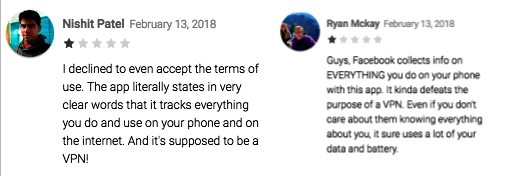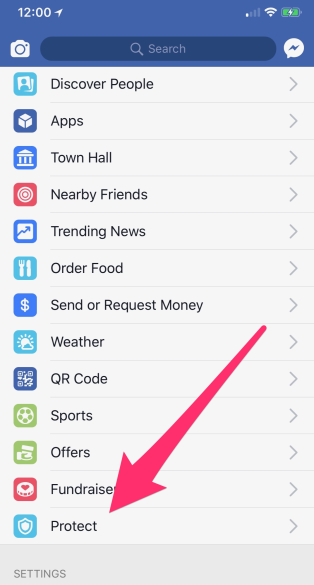Facebook’s Onavo VPN app the essence of situational irony – invading while claiming to protect privacy.
Facebook has begun releasing a controversial app for its Android and iPhone (iOS) users which is a free VPN program from Onavo, an Israeli company bought by Facebook in October 2013, which promises to protect users’ browsing data. However, the program is accused of monitoring user traffic and tracking the major competitors of Mark Zuckerberg’s company.
The promotion of the VPN application can be found on the Facebook sandwich menu for Android and iOS under the name of Protect, as published by TechCrunch. By clicking on the option, the user is redirected to Google Play or the App Store to download the program to the mobile phone. In stores, the program sells itself as optional data protection and saving the consumption of mobile internet. But, researchers say the purpose of software is different.
Gizmodo calls Onavo a corporate spyware while in August, a report published by the Wall Street Journal revealed how Facebook would be using Onavo’s VPN to take advantage of competitors. News sources reported that Mark Zuckerberg’s social network already knew of the decline in Snapchat use in late 2016 even before its official release in February 2017.
Like other services in the category, Free VPN Protect creates a private network that encrypts the user’s browsing traffic on the Internet. During the process, however, the program redirects the information to Facebook’s servers, which record the actions in its database.
With this information in hand, Facebook can discover data such as what apps people are using, how often, how long, and whether the program is used by more men or women in that country. In addition, the social network can even know the number of photos tagged or posted by a regular user during the week if the original traffic is not encrypted.
Although it is difficult to know the exact number of users of the Onavo VPN application, the number of downloads of the program is quite significant. By August, the estimate was that the app had been downloaded 24 million times, mostly on Android. Now, with the advertising inside Facebook, the trend is that the number increases.
According to the Wall Street Journal, Facebook-linked sources say the company used Onavo’s VPN data to launch functions in their application and make strategic decisions. In the fight against Snapchat, for example, the social network was able to discover the number of snaps shared daily and observe the fall of the rival after the launch of the stories on Instagram.
Months after buying Onavo in 2013, Facebook would also have used service data to hit the hammer on its biggest acquisition WhatsApp. The VPN application revealed that messaging was installed on 99% of all Android phones in Spain, prompting Mark Zuckerberg’s company to acquire the messenger in 2014 for $ 22 billion.
Years later, Facebook would have used the same strategy to monitor the use of live video applications such as Periscope and Meerkat. The information helped the social network launch the broadcasts feature in its flagship application for Android and iPhone in early 2016.

Remember, there is no such thing as free lunch, especially when it comes to free VPNs. Previously, there have been two incidents which exposed how users should be cautious when it comes to using free VPNs, for instance, PureVPN who claimed in its privacy policy that the company “Do Not monitor user activity nor do we keep any logs. We, therefore, have no record of your activities” but not only did the company keep logs, it also aided the FBI to track a cyberstalker by providing his logs.
Meanwhile, Hotspot Shield another highly popular VPN app on Android and the iOS store was caught violating user privacy by intercepting web traffic, keeping activity logs and redirecting it to third-party websites especially advertising companies.









